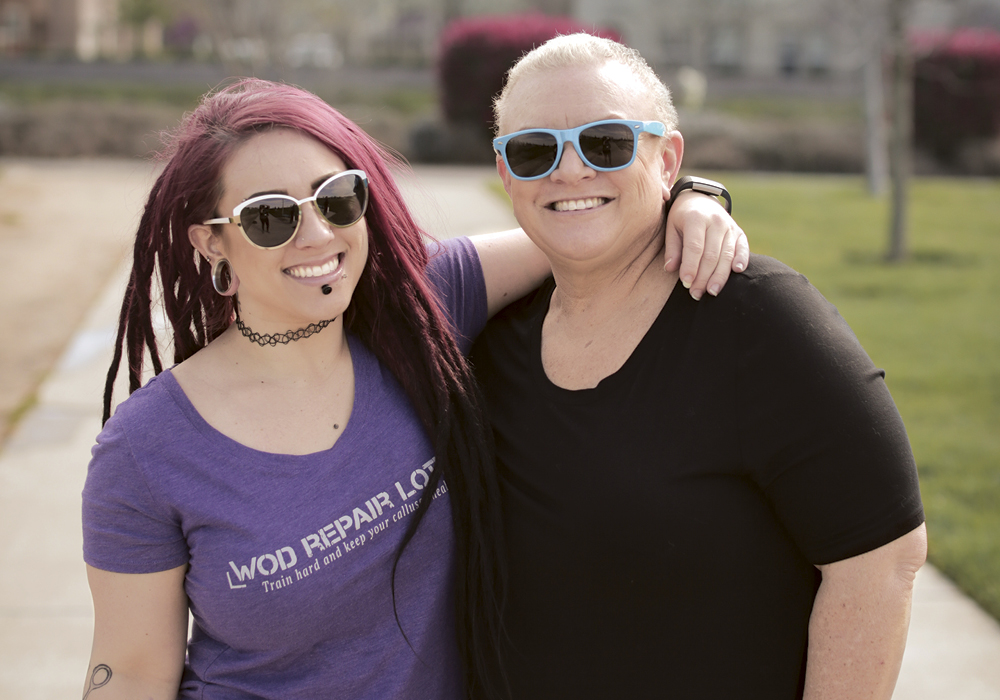
From Cancer to Health
offers patients hope, support
When Cynthia Meier found out she had stage 3 ovarian cancer in November 2013 she felt frustrated and alone, like no one understood what she was going through.
“I had surgery and started chemotherapy,” Meier says. “But the doctors at the hospital didn’t offer anything else to help me deal with the disease.”
After doing some research, Meier moved her care to UC Davis Health.
“I got an appointment with a gynecological oncologist, and it’s been like night and day with the treatments offered — and the supportive care,” she says. “UC Davis educated me about cancer using counseling and other programs. That’s helped me deal with my disease and given me hope.”
From Cancer to Health (C2H) is one of these programs. Offered by the UC Davis Comprehensive Cancer Center, C2H teaches women how to better manage cancer-related stress. Through 12 weekly group sessions, women learn skills to cope with common problems faced by people with cancer, ways to alleviate cancer’s physical symptoms and stress-management strategies.
“This is not a traditional support group,” says Jena Cooreman, an oncology social worker who leads the program. “Our program is unique because we meet weekly and reserve the sessions exclusively for women who are part of the group.”
Meier admits she was at first skeptical.
“I didn’t want to go to the first session, but my daughter Ashley pushed me to,” she explains. “I thought the program wouldn’t help me because my cancer was diagnosed too late, so it won’t go into remission. I’ll never really be completely healthy.”
Meier now says the program had a tremendous impact, “amazing, valuable and life-changing,” she says.
C2H focuses on a specific topic each week, such as nutrition, exercise and maintaining good relationships. At the beginning of the program, patients get a manual with course materials so they know what topics will be covered. They also have an opportunity to share their experiences and challenges during group discussions at each session.
“Everyone gets to know each other really well and trusts each other,” Cooreman says. “This is important because it lets group members talk about more personal concerns, like sexual health and body image.”
A registered nurse also attends the meetings and is available to address patients’ questions. During Meier’s session, the nurse was Jessie Westlake.
“It was much easier to open up about certain health issues with her,” Meier says. “She made us all feel very comfortable and safe.”
Meier says the most valuable thing she learned through the program was how to deal with relationship conflicts, which in her case were exacerbated by her demanding schedule.
“Before I got cancer, I worked 50 hours a week and made lots of money, but I didn’t spend much time with my daughter,” she says. “Cancer has actually made our relationship better. I learned how to communicate better, and how to speak to my daughter in a non-offensive way. And now I have more time to spend with her, and I feel like I really know her. I also have more time to do things I really enjoy, like paddle boarding and kayaking.”
Meier credits C2H with giving her the skills needed to deal with cancer, and she encourages other women with a cancer diagnosis to join the program.
“Just give it a try — it’s completely life-changing,” Meier says. “It’s easier to live with cancer after going through the program. Now I have hope. I know I’m going to beat the five-year life average I’ve been given. Cancer is my new career, and I’m ready for it.”
To learn more about From Cancer to Health, contact Jena Cooreman at jlcooreman@ucdavis.edu or 916-734-5198.
